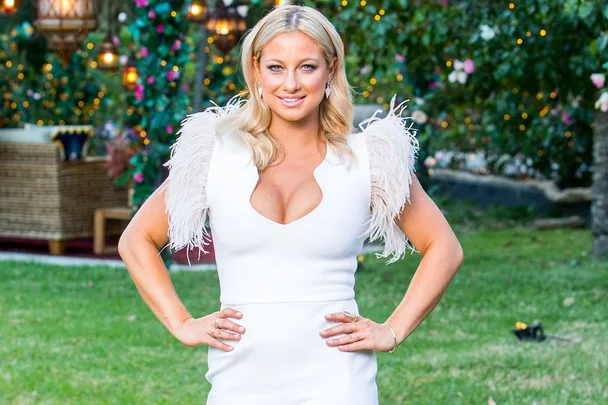Wednesday night’s episode of The Bachelor was hard to watch for reasons other than we’re used to. Instead of sitting through an awkward first date or a wow-the-camera-is-far-too-zoomed-in kiss, we saw three grown women bully and belittle another contestant, resulting in her standing outside in the cold sobbing.
Furthermore, rather than putting the young woman’s mental health first, producers chased Tenille down with a microphone and camera just to ensure they were getting her breakdown on film – at one point, a producer even asked, “How do you feel about Nick?”
Romy Poulier, Cat Hennessey and Alisha Radburn were singled out as the ‘villains’ of the series early on, but watching episode seven, it was evident that their behaviour is far more serious than a few snide comments here and there for added drama.

Many viewers pointed out that Romy was ‘gaslighting’ while talking to Tenille, a form of psychological manipulation which makes the targeted individual doubt themselves and causes the victim to question their own feelings, instincts and sanity.
This isn’t the first time the term has been used on this season of the show, either. A few weeks ago when contestant Shannon Baff tried to stand up to Romy, Romy turned things around, accusing Shannon of attacking her.
But what does gaslighting mean and how serious can it be?
What is gaslighting?
“Gaslighting is a tactic which people use (either consciously or unconsciously) to gain power or control over a person,” Lysn psychologist Breanna Jayne Sada explains, saying the term was coined from the 1944 movie Gaslight, where a man tries to convince his wife that she is ‘insane’ by making her question her reality.
“Gaslighting is often done slowly, often to the point where the victim doesn’t realise that is what has been happening. It can make a victim doubt his or her own thoughts and memories,” Sada says.
Can gaslighting happen in any situation?
Though many associate gaslighting with a romantic relationship, as we saw on The Bachelor, it extends further than intimate relationships and close friendships.
“It can happen at work, with friends, relatives and as we’ve seen last night, on reality TV,” Sada says, noting that a lot of people make relationships about power – and that’s where gaslighting comes in.
Why would someone gaslight someone else?
“This technique is used by people to gain further power and control over someone or a group of people,” Sada explains. “It comes back to control and manipulation, with people often using it to make others depend on them.”
“Sometimes perpetrators learn this behaviour throughout their childhood, perhaps their parents practised this kind of behaviour or they’ve slowly learnt tactics through their own behaviour and seeing the outcome it can have. Gaslighting is also common among people who have personality traits like narcissism and examples exist among dictators and cult leaders.”

What should people look out for?
“There are several techniques to look out for, however, one of the biggest signs is when the perpetrator tells deliberate lies, often denying things they’ve said,” Sada says. “This can make the victim question everything in their own reality because the perpetrator is so adamant that they’re telling the truth.”
What effect can gaslighting have on the victim?
Gaslighting is a form of psychological abuse and can have a big impact on a person’s mental health. “The constant self-doubt, confusion and questioning of self-worth can lead to things like anxiety and depression,” Sada says.
“It can also cause future trust issues and problems in relationships when the victim is hesitant to make themselves vulnerable. Gaslighting also beats down a person’s self-esteem which can lead to the victim becoming co-dependent on others or the perpetrator themselves.”
As far as The Bachelor goes, Sada points out the one positive takeaway: the opportunity to open up the lines of communication surrounding bullying and gaslighting. However, she notes the situation could have been handled in a different way. “It certainly would have been triggering for some people and there could have [been pre-warnings] about the potential of it causing distress.”
If you or anyone you know needs help or advice, please call Lifeline (131 114) or Beyond Blue (1300 22 4636).










